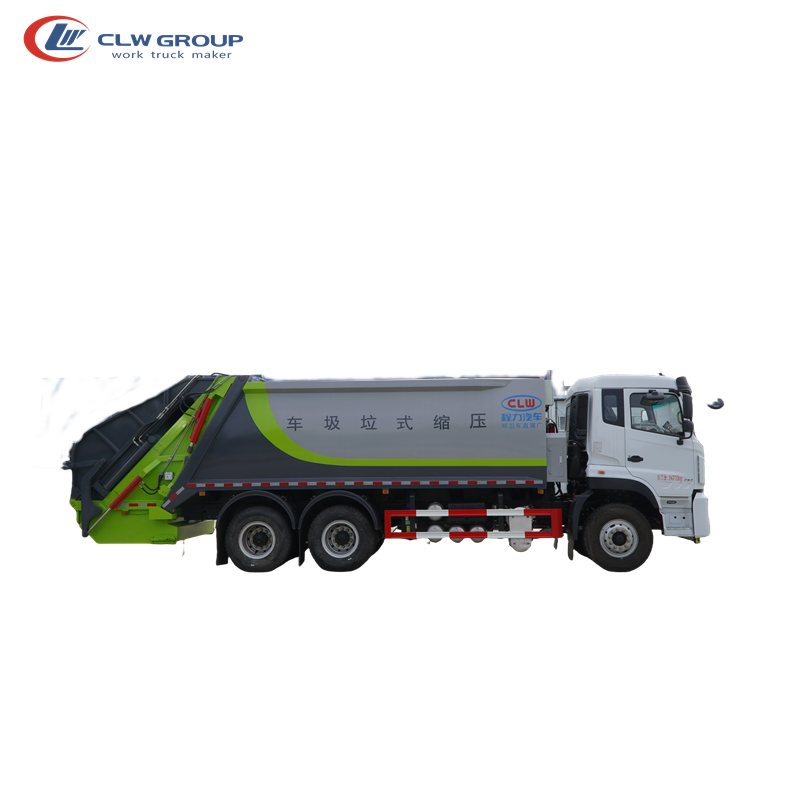Introduction
Work truck trailers play a vital role in many industries, providing a means of transporting goods, equipment, and materials to various job sites. However, with this important function comes a responsibility to ensure that work truck trailers are compliant with safety regulations and standards. Failure to maintain compliance can result in accidents, injuries, and costly fines. In this article, we will explore the importance of work truck trailer compliance, key regulations to be aware of, and best practices for ensuring the safety and efficiency of work truck trailers.
Importance of Work Truck Trailer Compliance
Compliance with safety regulations and standards is crucial for work truck trailers for several reasons. First and foremost, ensuring compliance helps to protect the safety of workers and the general public. Best hybrid box trucks for fuel savings are often used to transport heavy loads, equipment, and hazardous materials, and failure to comply with safety regulations can increase the risk of accidents and injuries.
Additionally, compliance with regulations helps to protect the integrity of the transportation industry as a whole. Non-compliant work truck trailers can pose a threat to other vehicles on the road and can contribute to traffic congestion and delays. By ensuring that work truck trailers meet safety standards, companies can help to maintain the efficiency and reliability of transportation networks.
Furthermore, compliance with regulations is essential for avoiding costly fines and penalties. Regulatory agencies such as the Department of Transportation (DOT) and the Federal Motor Carrier Safety Administration (FMCSA) have strict guidelines in place to ensure the safety of commercial vehicles, including work truck trailers. Failing to comply with these regulations can result in fines, citations, and even the suspension of operating licenses.

Key Regulations for Work Truck Trailers
There are several key regulations that companies and operators of work truck trailers must be aware of to ensure compliance and safety. These regulations cover various aspects of work truck trailer operations, including vehicle maintenance, driver qualifications, load securement, and hours of service. Some of the most important regulations to be aware of include:
1. Federal Motor Carrier Safety Regulations (FMCSR): The FMCSR sets forth safety regulations that apply to commercial vehicles, including work truck trailers. These regulations cover a wide range of topics, including vehicle inspection and maintenance, driver qualifications, hours of service, and drug and alcohol testing.
2. Department of Transportation (DOT) Regulations: The DOT has specific regulations that apply to commercial vehicles operating on public roads. These regulations cover areas such as vehicle weight limits, load securement, and hazardous materials transportation.
3. National Highway Traffic Safety Administration (NHTSA) Regulations: The NHTSA sets safety standards for vehicles operating on public roads, including work truck trailers. These standards cover areas such as braking systems, lighting and reflectors, and tire safety.
4. Occupational Safety and Health Administration (OSHA) Regulations: OSHA has regulations in place to protect the safety of workers who operate and maintain work truck trailers. These regulations cover areas such as fall protection, electrical safety, and hazard communication.
Best Practices for Ensuring Work Truck Trailer Compliance
To ensure the safety and compliance of work truck trailers, companies and operators should follow best practices that address key areas of concern. These best practices include:
1. Regular Vehicle Inspections: Regular inspections of work truck trailers are essential for identifying and addressing maintenance issues before they become safety hazards. Inspections should cover all major components of the trailer, including brakes, tires, lights, and coupling systems.
2. Driver Training and Qualifications: It is important to ensure that drivers of work truck trailers are properly trained and qualified to operate the vehicles safely. Drivers should be familiar with all applicable regulations and safety procedures, and should undergo regular training to stay up-to-date on best practices.
3. Load Securement: Proper load securement is essential for preventing accidents and injuries caused by shifting or falling cargo. Companies should provide training on proper load securement techniques and ensure that all loads are properly secured before transportation.
4. Maintenance Records: Keeping detailed maintenance records for work truck trailers is essential for demonstrating compliance with regulations and ensuring the safety of the vehicles. Records should include information on inspections, repairs, and maintenance schedules.
5. Emergency Preparedness: Companies should have emergency procedures in place to address potential accidents or incidents involving work truck trailers. This includes having emergency contact information, first aid supplies, and procedures for reporting accidents to regulatory agencies.
Conclusion
Ensuring compliance with safety regulations and standards is essential for the safe and efficient operation of work truck trailers. By following best practices and staying informed about key regulations, companies and operators can help to protect the safety of workers and the public, maintain the integrity of the transportation industry, and avoid costly fines and penalties. By prioritizing safety and compliance, companies can ensure that work truck trailers continue to play a vital role in various industries while minimizing the risks associated with their operation.
